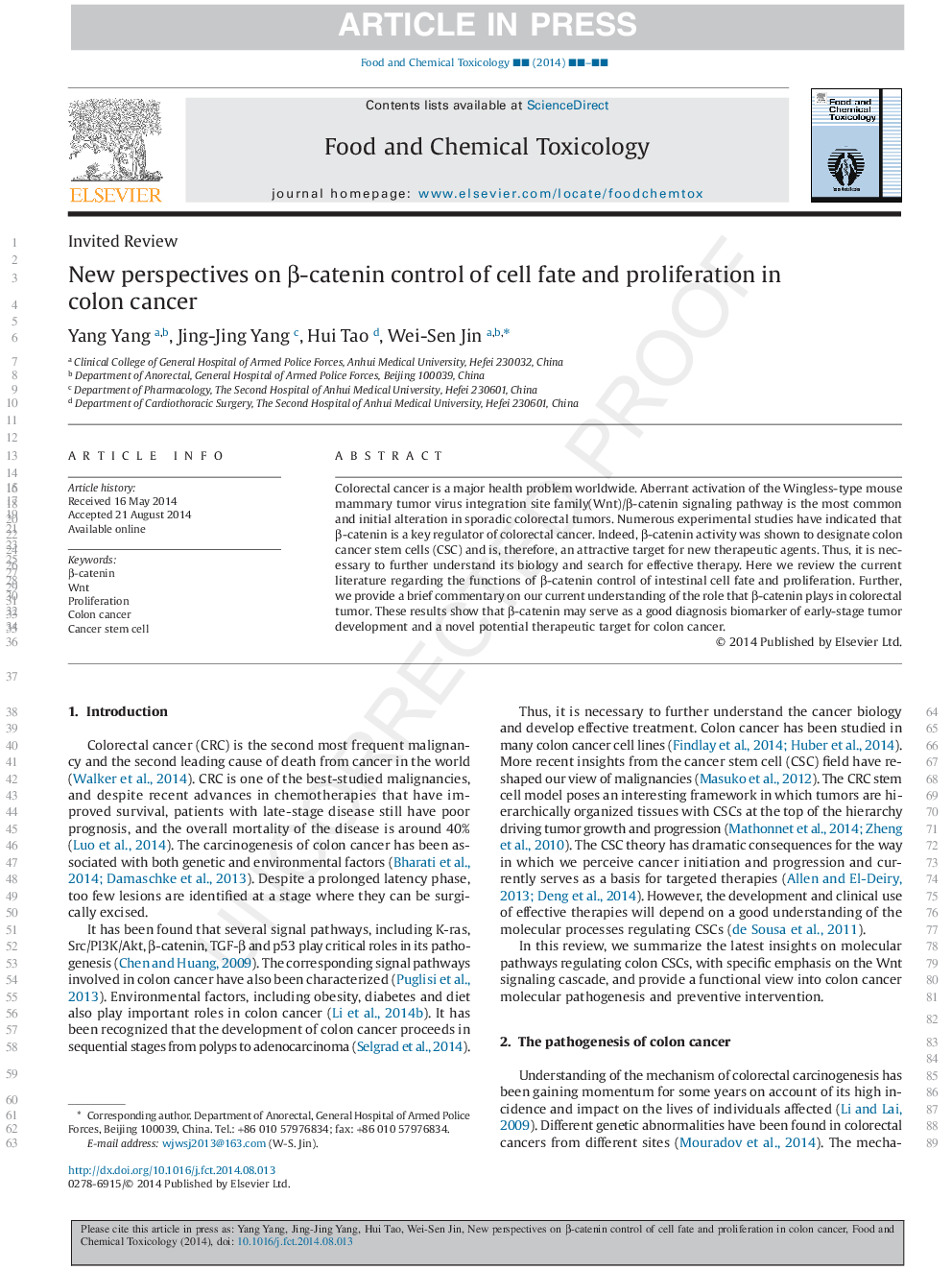| Article ID | Journal | Published Year | Pages | File Type |
|---|---|---|---|---|
| 5849946 | Food and Chemical Toxicology | 2014 | 6 Pages |
Abstract
Colorectal cancer is a major health problem worldwide. Aberrant activation of the Wingless-type mouse mammary tumor virus integration site family(Wnt)/β-catenin signaling pathway is the most common and initial alteration in sporadic colorectal tumors. Numerous experimental studies have indicated that β-catenin is a key regulator of colorectal cancer. Indeed, β-catenin activity was shown to designate colon cancer stem cells (CSC) and is, therefore, an attractive target for new therapeutic agents. Thus, it is necessary to further understand its biology and search for effective therapy. Here we review the current literature regarding the functions of β-catenin control of intestinal cell fate and proliferation. Further, we provide a brief commentary on our current understanding of the role that β-catenin plays in colorectal tumor. These results show that β-catenin may serve as a good diagnosis biomarker of early-stage tumor development and a novel potential therapeutic target for colon cancer.
Related Topics
Life Sciences
Agricultural and Biological Sciences
Food Science
Authors
Yang Yang, Jing-Jing Yang, Hui Tao, Wei-Sen Jin,
